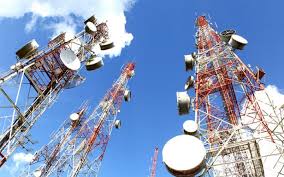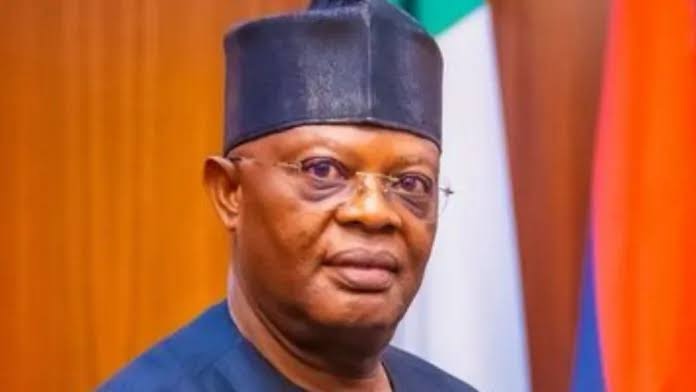…FCCPC raises alarm
…as telcos call for tariff hike
The distress in Nigeria’s telecom space appears to be taking larger form and causing greater pain, with the Federal Competition and Consumer Protection Commission (FCCPC) raising an alarm about disruptions in online banking services across the country.
FCCPC, in a statement seen on its website Tuesday, said these disruptions, which have hindered customers from accessing their funds, making payments, and carrying out essential transactions, have negatively impacted millions and have serious implications for individuals and businesses alike.
“During service disruption, it is essential that banks keep their customers fully informed about the causes, scope, and anticipated duration of any service issues. Regrettably, many consumers are left in the dark, a situation that increases frustration and leaves customers feeling unsupported,” it said.
The commission said the Federal Competition and Consumer Protection Act allows consumers to seek redress for services that do not meet the necessary standards and, as such, bank customers can seek redress if they are adversely affected by substandard services.
“The FCCPC is currently reviewing the situation to determine if consumers’ rights to redress are being upheld and if more action is needed to enforce accountability.
“The FCCPC is actively working with relevant regulatory authorities, financial institutions, and stakeholders to address these disruptions and ensure the protection of customers. The Commission will pursue all necessary actions to ensure the protections of the FCCPC are upheld.
“The Commission assures affected bank customers that their concerns are being taken seriously. We urge banks and financial institutions to take swift action to restore services, prioritise customer support, and enhance communication to manage customer expectations transparently and responsibly,” it said.
There has been no word on the specific cause of the current disruptions but there have been two points of telecom industry challenges which promised to ripple into the banking transactions space over the past weeks.
This first is the strident complaints of the country’s telecom operators – MTN, Airtel, GloMobile and 9Mobile – about mounting distress to their business arising from the devaluation of the naira, rising costs, and tariffs that have been static for 11 years despite spiralling inflationary trends.
Informed sources then warned that the telcos might be forced to embark on load shedding, which would significantly reduce quality of service on voice and data services, including internet and mobile banking transactions on mobile phones and other attached devices.
The telcos complained that current revenue levels are insufficient to sustain their network operations.
The second point of potential disruption to mobile banking services are tensions over a lingering N250 billion debt owed the telcos by Nigerian banks.
Karl Toriola, chief executive officer (CEO), MTN Nigeria, had said that the banks might be disconnected from the USSD platform due to debts arising from the use of the quick codes by their customers, which has now reached N250 billion.
USSD, also known as quick or feature codes, is a Global System for Mobile Communications (GSM) protocol that is used to send text messages and initiate financial transactions such as cash transfers, balance inquiries, payments for services and others.
The Nigerian Observer had reported last Monday that millions of Nigerians using online and mobile banking services may begin to suffer transaction hitches or failures altogether in the days and weeks to come, as a debt crisis between banking services providers and mobile network operators lingers unresolved.
This is as the Federal Government had failed to intervene in the Unstructured Supplementary Service Data (USSD) debt crisis between telecom operators and financial banks in the country.
The magnitude of the problem becomes glaring, considering that as at this year, 2024, an estimated eight percent of the Nigerian population aged between 16 and 64 were using mobile payment services.
In January 2023, mobile gateways were used 108.14 million times, a 230.72 per cent increase from the 32.69 million times they were used in the corresponding period the year before.
During the period under review, the value of mobile transactions surged by 124.85 per cent to N2.37tn from N1.05trn.
So far, no word has been heard from Dr. Bosun Tijani, minister of Communications and Digital Economy, and the Nigerian Communications Commission (NCC) on the matter.
MTN’s CEO, Karl Toriola, however said mobile network operators (MNOs) might, subject to regulatory approval, suspend supporting the use of the service on the network for banking operations, as the debt had continued to pile up and was becoming unsustainable to the operators.
Toriola, further said that the debt pile up was unsustainable for telecommunications companies who had pressing challenges requiring cash to resolve.
For his part, Gbenga Adebayo, an engineer and chairman of the Association of Licensed Telecom Operators of Nigeria (ALTON), described the services provided by telecommunication firms to the banks’ customers to use USSD, as for profit and not socially motivated.
Adebayo added: “The debt has been long overdue and the banks who owe the telcos have more or less turned us to beggars on getting them to pay our debt, so there is no choice. If the regulators do not resolve the matter, what has been foreseen will happen, the services will be withdrawn. We are leaving to the CBN to resolve, if it is not able to resolve this matter, there will be no choice than to withdraw USSD from the banks.”
In 2019, telcos sought to charge banks N4.50 for every 20 seconds of USSD usage, but banks opposed this, claiming it would drastically hike transaction costs.
In response to mounting pressures, the operators previously agreed to a new charge of N6.98 per transaction in 2021.
Despite this, the debt has escalated significantly, with Toriola urging the Central Bank of Nigeria (CBN) and the Nigerian Communications Commission (NCC) to mediate a resolution.
Toriola said if the situation remained unresolved, telcos may have no choice but to seek regulatory approval to cut off banks from USSD services entirely.
Nigeria’s mobile banking usage surged by 230.72 per cent year-on-year in January 2023 according to data from Nigeria Interbank Settlement System, despite multiple reported failures.
The leap in the use of banking apps and mobile gateways is traceable to the Central Bank of Nigeria’s decision to redesign the naira and the introduction of a new withdrawal limit policy, which made bank customers embrace mobile banking for their transactions.


